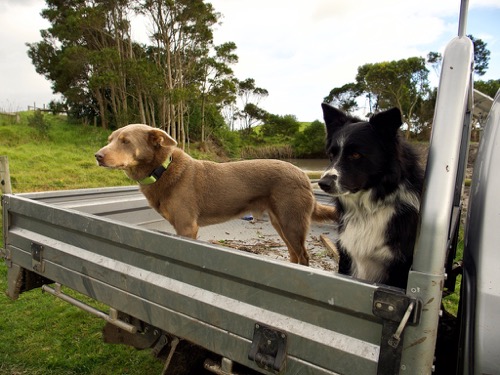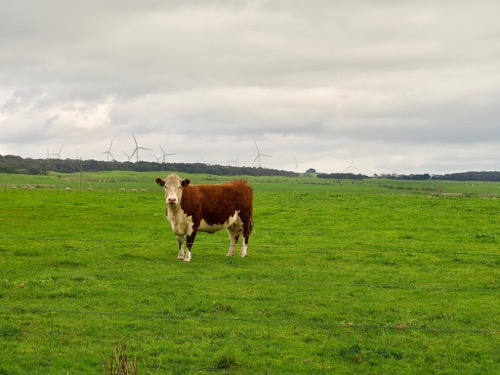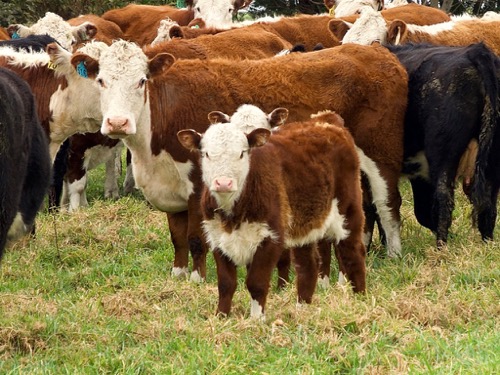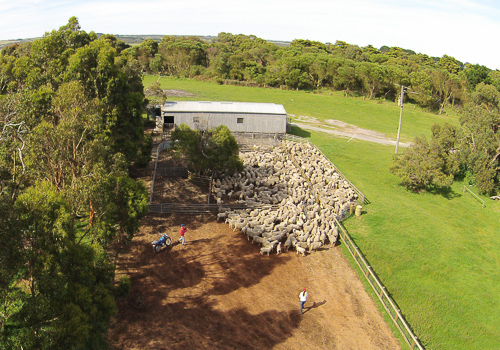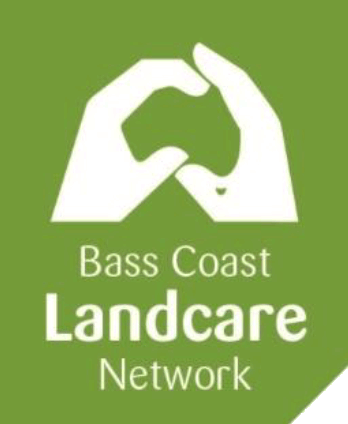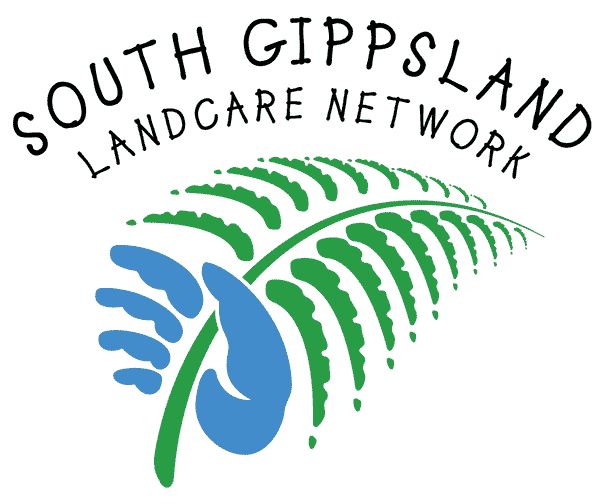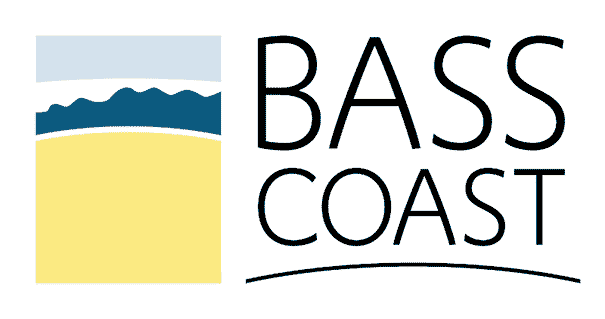Jenny and Paul O’Sullivan: Our Story
Jenny and Paul O’Sullivan run Malabar Farm which has been under the stewardship of the family for over 50 years. Their approach is based on the values of producing high quality produce, whilst improving the natural features and infrastructure of the property. Eighty-three hectares of remnant vegetation and shelter belts have been set aside to protect waterways, vulnerable soils and provide shade and shelter for livestock.
Our Vision
“To run a profitable and sustainable business. We want to work in tune with nature- matching stocking rates and timing of operations with the growing conditions and the land’s carrying capacity.”
“We aim to create a great place to live and work, looking after the land, the animals and the people who work here.”
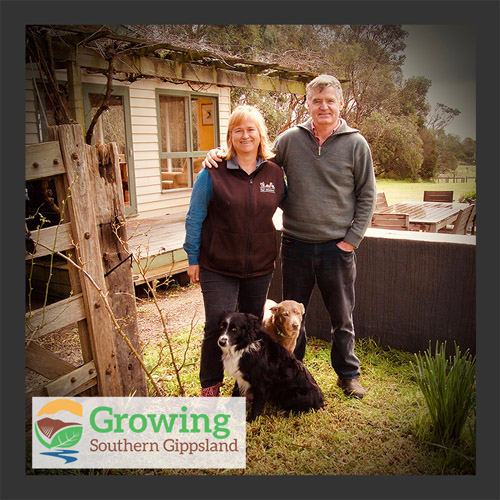
Enterprise: Grazing - Beef and Sheep, and Agritourism
Business Name: Malabar Farm
Locality: Tarwin Lower
Catchment Management Region: West Gippsland
Landcare Network: South Gippsland
LGA: South Gippsland Shire Council
Landform: Gippsland Plains
Soil Type: Grey clay vertosols and loamy sands
Annual Rainfall Average: 848.5 mm or 33.4 (Source Bureau of Meteorology)
Our Enterprise
The O’Sullivans run beef cattle and sheep.
“We breed around 2200 ewes, and about 420 cows. The ewes lamb in the spring, we get around 3000 lambs and they’re perfect for utilising that spring flush. So, we get that beautiful spring feed used, and then we sell the lambs off when feed runs out.”
They are aware of the importance of considering soils and revegetation in relation to land management.
“I think the most important thing is understanding your soil and your soil type and what the constraints are to growing pasture. I think we've done that. To us, really tackling constraints to optimise the pasture growth is really important.”
The O’Sullivans follow the guidelines of Environmental Management System (EMS - ISO 14001) in relation to their approach to farm management.
“The EMS is a great system that helps us identify risks and consider catchment, industry and state priorities. Documenting what we do means we have a record of how we improved our property and management over time. It is a great record for us.”
They also manage their livestock to meet Meat Standards Australia (MSA) guidelines.
Our Challenges
“The soils are very sandy here and can easily be eroded if overgrazed, so our grazing strategy is very important. We have a big sand blow and sandy rises, that have always been on the property that we had to fence and remove all grazing.”
“The variable seasons with some dry springs and summers mean we can have less feed than planned for livestock. We need to have a flexible system to ensure we can feed stock and don’t overgraze paddocks.”
“We have been growing concerned about water availability with the changing seasons and some years with less rain. As a result, we have invested in upgrading our water infrastructure to ensure we have always adequate water for stock”
Our Landscape Activities
Their landscape activities have focused on improving movement of stock, protect remnants and creating shade and shelter.
“We’ve protected all remnant vegetation on farm and had an extensive tree planting program to create shade and shelter for livestock across the property. When fences need replacing, we’ve realigned the fences along land class, and direct seeding along the new fence lines to create really significant shade and shelter.”
“We have doubled the number of paddocks, halving the size over the last 30 years to improve grazing management. We have had to improve our water management, extending dams and using solar power to pump to header tanks that can then use gravity to feed troughs.”
“Managing waterways and flood areas is also important. We’ve fenced off the area that floods, and waterways so we can manage these areas better and planted trees and scrubs there.”
“We’ve created laneways across the property to reduce damage to paddocks in wet winters and enable us to move livestock easily and get vehicles around safely around the farm to check livestock and pastures.”
Our Practices and Successes
“These sandy coastal soils are very low in nutrients, not just phosphorous, potassium and sulphur, but also micronutrients such as molybdenum, copper, cobalt and selenium. We seek to ensure the nutrients needed for growing grass and clover is available or supplement our livestock if the nutrients are needed by animals for good health rather than the plants.”
“We have focused on soil testing, looking at soil fertility, animal nutrients, and getting that right, then growing the feed and utilising it. If we can improve the quality of our pastures, animals can grow faster and produce less methane in the process.”
“By running an efficient system, selecting for efficient animals and planting significant trees on farm we have been able to create low emissions intensity with our livestock.”
Sharing
The O’Sullivans have a long history working with farmers in the area. They were founding members of Gippsland Natural and are active with beef and lamb groups as well as Landcare.
“But then we started [Gippsland Natural], when we started selling the product to consumers we started doing farmers markets and we started creating profiles…We called it Gippsland Natural because it was their natural, the animals are raised in a natural environment, they're lambing and they're calving in the paddocks. They're raised on grass, it was purely grass fed.”
Another part of the O’Sullivan’s approach is educational. They run an agritourism business, Gippsland Food Adventures.
“We wanted to combine our passion for farming, food, wine and cooking to create innovative experiential adventure that showcases the regions produce and people. We wanted to talk to the consumer and to students about sustainable farming, show them what it looks like and tell our story.”
Jenny O’Sullivan is an advocate of the agricultural industry.
“I am very involved with industry. I am on the committee of the Australian Beef Sustainability Framework. I am also on Cattle Council subcommittees. We develop policies for industry and then look at how we can get positive outcomes.”
“I think the industry has made good progress. A big area of focus is reducing methane emissions. The industry has committed to be carbon neutral by 2030. We have so far reduced emissions by 56.7 % since 2005. The industry is investing around $12.3 million a year in environmental sustainability to drive more progress in this area”
Websites
www.gippslandfoodadventures.com.au
www.mla.com.au
www.sustainableaustralianbeef.com.au
Images
